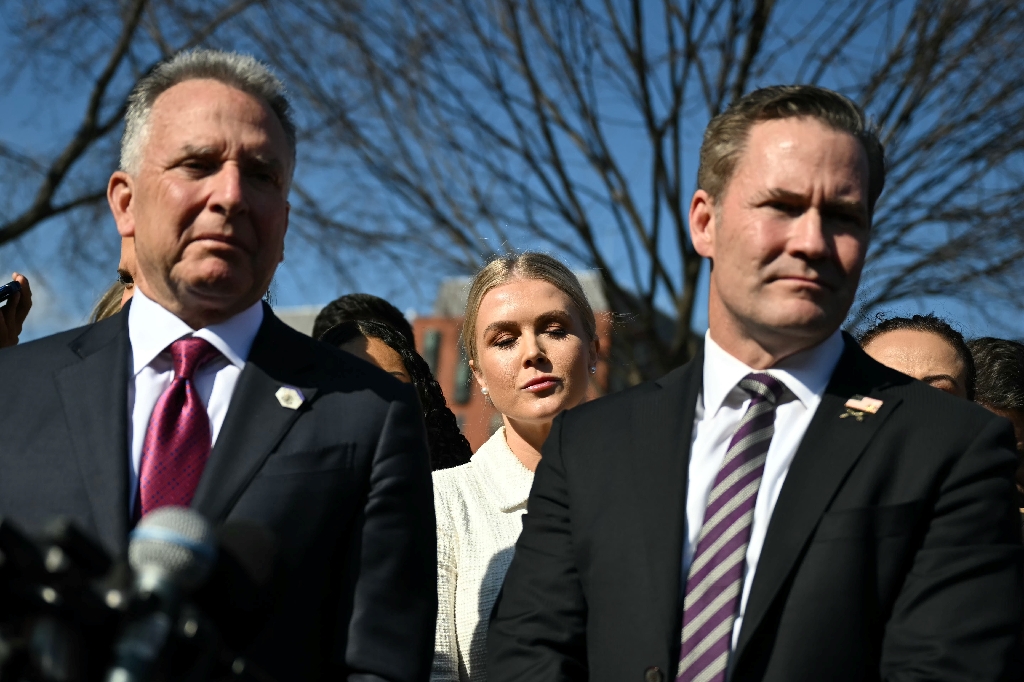(AFP) – The UN chief warned Monday that an invasion of Rafah in far-southern Gaza would “put the final nail in the coffin” of aid operations, after Israel said its army had readied a plan to move civilians out of the packed city.
United Nations Secretary-General Antonio Guterres said Rafah — where around 1.4 million Palestinians have sought refuge near the Egyptian border — is also “the core of the humanitarian aid operation” in the Gaza Strip where Israel has been fighting Hamas militants for nearly five months.
With tensions high across the region, Israel fired the first strikes on Lebanon’s east since the start of the Gaza war, killing two Hezbollah fighters far from Lebanon’s southern border.
In a political shock, Palestinian president Mahmud Abbas accepted the resignation of prime minister Mohammad Shtayyeh’s government in the Israeli-occupied West Bank.
A presidential decree said the government will stay on in an interim capacity until a new one is formed.
Shtayyeh cited “the new reality” in Gaza and “the escalation in the West Bank and Jerusalem”, where deadly violence has surged since the Israel-Hamas war began on October 7 with the Palestinian group’s attack on southern Israel.
Israel’s top ally Washington and other powers discussing a post-war Gaza have called for a reformed Palestinian Authority to take charge of both the West Bank and Gaza, which has been ruled by Hamas since 2007.
Shtayyeh urged intra-Palestinian consensus after years of rift and the “extension of the Authority’s rule over the entire land of Palestine”.
Heavy fighting raged on in Gaza, where Israel’s military said troops uncovered a tunnel network about 10 kilometres (six miles) long from Gaza’s central area to Zeitun in the north, with weapons storage facilities “as well as the bodies of terrorists left in the tunnel”.
Amnesty International and Human Rights Watch (HRW) accused Israel of further limiting aid despite an order from the UN’s top court.
The International Court of Justice ruled a month ago that Israel must prevent genocidal acts and take “immediate and effective measures” for aid provision. But the main UN aid agency for Palestinians, UNRWA, said humanitarian assistance entering Gaza has halved in February from the previous month.
“The Israeli government is starving” Gaza’s 2.4 million Palestinians and has “simply ignored the court’s ruling”, said Omar Shakir, HRW’s Israel and Palestine director.
The Jordanian army said it carried out a series of humanitarian aid drops, sending “relief and food supplies… to alleviate the suffering of the people of the Gaza Strip”.
– ‘Collective punishment’ –
Israel’s military campaign has killed at least 29,782 people in Gaza, mostly women and children, according to the Hamas-ruled territory’s health ministry. The Hamas attack that triggered the war resulted in the deaths of around 1,160 people in Israel, mostly civilians, according to an AFP tally based on official figures.
Militants also took about 250 Israeli and foreign hostages, 130 of whom remain in Gaza including 31 presumed dead, according to Israel.
Mediators continued negotiations towards a ceasefire and hostage release deal, with hopes it can be in place before the start of the Muslim holy month of Ramadan in about two weeks.
Israeli Prime Minister Benjamin Netanyahu stressed Sunday that the army will launch a ground invasion of Rafah to achieve “total victory” over Hamas.
Any truce deal would delay, not prevent, the operation, he said.
On Monday Netanyahu’s office said the military had shown Israel’s war cabinet its plan for evacuating civilians from Rafah. But no details have been released on where those displaced people could go. Aid officials and Gazans themselves say no place is safe.
Even before any ground invasion, Palestinians are dying in Rafah. Displaced Gazan Sharif Muammar said his son’s body had been pulled from the rubble after a strike on the city.
“There was no one here — only children,” he told AFP.
Foreign governments and aid groups have issued dire warnings that a Rafah invasion would inflict mass casualties`and humanitarian catastrophe
Guterres warned “an all-out Israeli offensive on the city would not only be terrifying for more than a million Palestinian civilians sheltering there; it would put the final nail in the coffin of our aid programmes”.
He said that “nothing can justify Hamas’s deliberate killing, injuring, torturing and kidnapping of civilians” and “nothing justifies the collective punishment of the Palestinian people.”
– Negotiations ‘positive’ –
Desperate families in Gaza’s north have scavenged for food as most aid trucks have been halted, with many people eating animal fodder and even leaves. “We have no food or drink for ourselves or our children,” Omar al-Kahlout told AFP near Gaza City.
As mediation continues, media reports suggest the warring parties are weighing a six-week halt to fighting and the initial exchange of dozens of hostages for several hundred Palestinian detainees held by Israel.
An unnamed Israeli official told news site Ynet the “direction is positive”.
Qatar’s Emir Sheikh Tamim bin Hamad Al-Thani — whose country hosts Hamas leaders and helped broker a one-week truce in November — is due in Paris this week, the French presidency said.
Sheikh Tamim met Hamas chief Ismail Haniyeh in Doha and discussed the negotiations, the official Qatar News Agency said.
Israel has exchanged near-daily cross-border fire with Lebanon’s Iran-backed Hamas ally Hezbollah since early October.
In a rare attack far from the border, Israeli strikes near the city of Baalbek, eastern Lebanon, killed two Hezbollah members Monday, security sources told AFP.
Israel confirmed the strikes and said they targeted Hezbollah “aerial defence” sites, after a missile downed an Israeli drone.
Hezbollah fired a volley of 60 rockets at an Israeli military base in response, the group said.
A third Hezbollah fighter was killed later Monday, the group said, with the Israeli army saying the man targeted in the strike in southern Lebanon had “commanded recent terrorist activities” against Israel.




